#Conjuration wizard
Text
#55: Elizabeth [BioShock: Infinite]
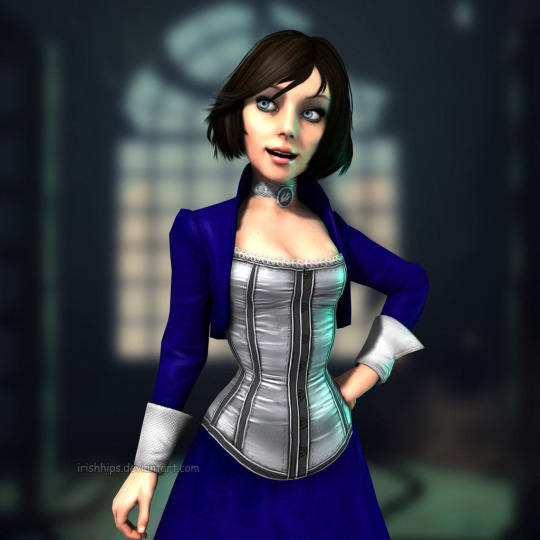
(Art Credit: Irishhips on deviantArt)
---
Welcome back, my friends!
I forgot to credit our requestor of the previous build, but luck would have it they also requested this one, so many thanks to our lovely family member, @nerdybear91 for both Harry Dresden and Anna DeWitt aka Elizabeth from BioShock: Infinite. Now, let's see what true Multiverse of Madness looks like!
Next Time: Let me solo her!
What do we need to survive navigating a giant floating city filled with brainwashed cultists, until we can finally reach Paris?
Everything & Everywhen (All At Once): Elizabeth's ability to manipulate Tears allow her to perform a multitude of multiversal effects. We will have to flavour a lot to make it look like we have control over all realities.
It's Big Brain Time: Having nothing to do but read, Elizabeth became familiary with a variety of subjects including medicine, music, arts, literature, etc.
Sneaky Supplier: Another interesting skill of Elizabeth's is that she can pick almost any lock we ask her to, and decipher any message. She's observant and can support Booker with resources and money during combat. Also get out of harm ways pretty well despite sometimes standing in the middle of thew fight.
---
Elizabeth is a Human. Although her innate powers to manipulate the Tears would qualify her as a Variant Human, we're gonna take it a step further and give her the Mark of Passage from Eberron: Rising from the Last War. We get a +2 Dexterity and a +1 to one ability of our choice (Intelligence), ability to speak Common and one language of our choice, thanks to Courier's Speed our standard speed is 35 feet, with Intuitive Motion we can add 1d4 to any Acrobatics check used to operate and maintain a land vehicle, and if ever we gain the ability to cast spells we get some additional Spells of the Mark. Finally, with Misty Passage we can cast the Misty Step spell once per long rest (with Dexterity as our ability modifier).
Being left alone for so long and having nothing to do but reading made Elizabeth quite a Sage. We gain proficiency in Arcana and History, two languages of our choice, and the Researcher feature; we can now lead Booker around to the right place when trying to find a piece of information (such as code for a lock).
ABILITY SCORES
We're starting with Intelligence; we've spent so long in seclusion with nothing but books. Follow that up with Dexterity, to help us with lockpicking, stealth, and platforming across Columbia. Constitution will be next, we can survive a lot of running and experiments in alternate timeline.
Wisdom will be next, what good is book knowledge if you do not apply it in real life. Charisma is on the lower end; Elizabeth had so little human interaction, she didn't have time to perfect her persuasion or intimidation skills. Finally, we're dumping Strength.
CLASS
Level 1 - Rogue: Running away from your adopted-but-not-really father who was using your powers to control the entire brainwashed city sounds like a good definition of going rogue. We start with a d8 as our Hit Dice, we get [8 + our Constitution modifier] initial Hit Points, proficiencies with light armour, simple weapons, hand crossbows, longswords, rapiers, shortswords, and thieves' tools. Elizabeth doesn't have any armour or weapons in the game, but consider giving her at least a dagger. We'll cover the armour later. Our saving throws are Dexterity and Intelligence, and we get to pick four class skills from the list (Investigation, Perception, Sleight of Hand, and Stealth).
Rogues start by honing their skills even further with Expertise. We select two skills we're proficient in (or one skill + thieves' tools) and we double our proficiency bonus (not our ability modifier) when using those skills. We're gonna get better in Stealth, to make sure we are unseen in dangerous situations, as well as thieves' tools, to make sure no lock poses a challenge.
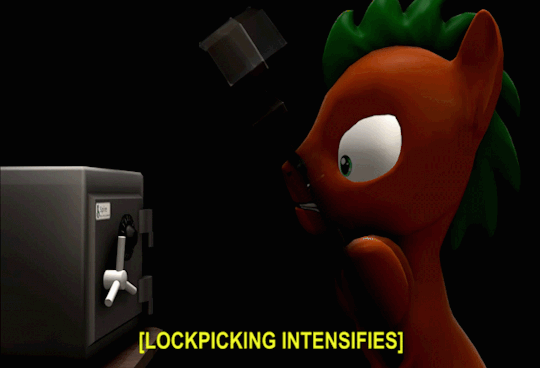
Rogues also get the abilit to Sneak Attack. Once per turn, if you have an advantage on your attack (and use a ranged weapon or one with the finesse property) or your target is within 5 feet of another creature hostile to it, you can add 1d6 extra damage to your damage roll.
We also learn Thieves' Cant, a system of words and phrases that can be used to convey a hidden message to others who also speak it (for me, it's always Cockney Rhyming Slang).
Level 2 - Rogue: We learn Cunning Action. From now on, we can transform the following Actions into Bonus Actions:
Dash - We gain extra movement for the duration of the turn, equal to our ground speed;
Disengage - Moving away from the target's melee range does not provoke an attack of opportunity;
Hide - We make a Stealth check to hide.
Level 3 - Rogue: Here, we pick our subclass - our Rogue Archetype - and for the smart and observant Elizabeth, I can think of nothing better but the Inquisitive archetype. With our Ear for Deceit, we can treat any Insight check roll that's lower than 7 as 8. With Eye for Detail, we can use a Bonus Action instead of an Action to make a Perception or an Investigation check. Always useful to find extra ammo, salts, or money. We also master Insightful Fighting, which lets us make a contested Insight check against the target's Deception; if we're successful, we come up with a good positioning and strategy, and we can apply Sneak Attack damage even if we don't have an advantage.
Speaking of Sneak Attack, our bonus damage now becomes 2d6.
Level 4 - Rogue: Time for our first Ability Score Improvement. We're gonna put one point into Constitution for better Hit Points and one into Wisdom, as we slowly come to the realisation something's not right in Columbia...
Level 5 - Wizard: Now it's time to play with port.. err Tears. Multiclassing into Wizard gives us... nothing, unfortunately. We do, however, learn Arcane Recovery: once per day (during a short rest), we can recover some spell slots we've expended. The spell slots can have a combined level equal to (or less than) half of our Wizard level rounded up.
Related to that, we now learn Spellcasting. Intelligence is our casting ability, and we know cantrips, regular spells, and rituals. Wizards can write new spells into their spellbook (or perhaps pulling those spells from other timelines) and they start with a few spells of their choice: three cantrips (for us it's Create Bonfire, Mending, and Sword Burst) and six 1st-level spells (we'll get Alarm, Detect Magic, Distort Value, Mage Armour, Tenser's Floating Disk, and Unseen Servant). From our Mark of Passage we also learn Expeditious Retreat and Jump.
Level 6 - Wizard: We pick our second subclass here, our Arcane Tradition. To make our Tears and multiverse manipulations more stable, we're going to pick the School of Conjuration. Since we are now a Conjuration Savant, the time and money we spend when copying Conjuration spells to our spellbook is halved. With Minor Conjuration, we can conjure an inanimate object in our hand or on the ground within 10 feet radius. The object must be no bigger than 3 feet on a side and weigh up to 10 pounds, be non-magical, and when conjured it sheds dim light for 5 feet. It lasts for 1 hour or until taken or dealt damage, and we can only create one object at the time.
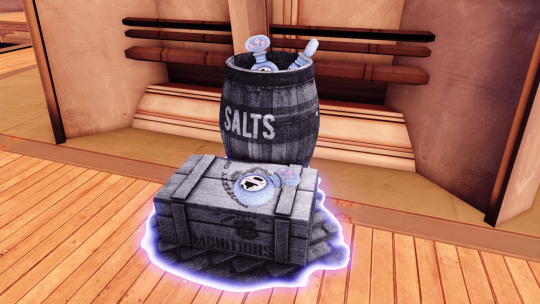
We also get to pick two more 1st-level spells: Silent Image and Snare.
Level 7 - Wizard: At this level we unlock 2nd-level spells. From our level-up we can get two new spells (Arcane Lock and Borrowed Knowledge) and from our Mark of Passage we get Misty Step and Pass Without Trace.
Level 8 - Wizard: Time for another ASI. This time, we're putting two points in Constitution, to get some better survivability. We also get a choice of a new cantrip (Message) and two more spells (Locate Object and Mirror Image).
Level 9 - Wizard: We unlock 3rd-level spells. Let's get Galder's Tower and Melf's Minute Meteors from our level-up, and we will get Blink and Phantom Steed from our Mark of Passage.
Level 10 - Wizard: Halfway through the build and we get Benign Transportation. We can use our action to teleport into an unocupied space within 30 feet of us. Alternatively, we can pick a space occupied by a Small or Medium creature and (if they're willing) swap places with them. We can do that once per long rest or until we cast a Conjuration spell of at least 1st-level. And speaking of Conjuration magic, let's grab two summoning spells here: Summon Fey and Summon Shadowspawn.
Level 11 - Wizard: We unlock 4th-level spells. From our level-up, let's grab Banishment and Fabricate. From our Mark of Passage we also get Dimension Door and Freedom of Movement.
Level 12 - Wizard: Time for more ASI. For now, let's improve our Dexterity by two point for some better Initiative, AC, and hiding skills. For our spells, let's gram Mordenkainen's Private Sanctum and Summon Construct to call some more support
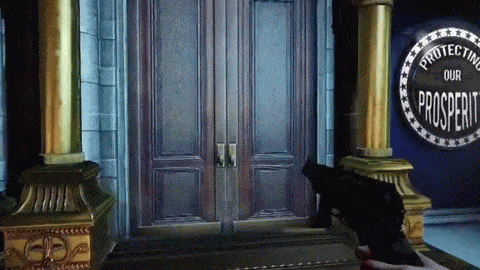
Level 13 - Wizard: We unlock 5th-level spells. From our level-up, let's grab Legend Lore and Wall of Force. We also gain our last spell from the Mark of Passage: Teleportation Circle.
Level 14 - Wizard: We get to pick our final cantrip (Mage Hand) and unlock next subclass feature. With Focused Conjuration, when we're concentrating on a Conjuration spell, our concentration cannot be broken. For this level's spells, let's pick Mislead and Rary's Telepathic Bond.
Level 15 - Wizard: We unlock 6th-level spells. Let's grab Arcane Gate and True Seeing to detect the smallest of Tears.
Level 16 - Wizard: With another ASI, we can bump up our Constitution by two more points here. For this level's spells, we can actually get back a bit and grab Far Step and Scrying.
Level 17 - Wizard: Unlocking 7th-level spells here. Time to finally start exploring other worlds and timelines with Dream of the Blue Veil and Plane Shift.
Level 18 - Wizard: We get access to our final subclass feature. Durable Summons give all creatures we summon or create additional 30 Temporary Hit Points upon summoning. Let's bring the image of another world to us with Mirage Arcane and summon another Elizabeth with Project Image.
Level 19 - Wizard: We unlock 8th-level spells. We can now create our own little worlds with Demiplane, and it's finally time to call an old friend with Illusory Dragon.
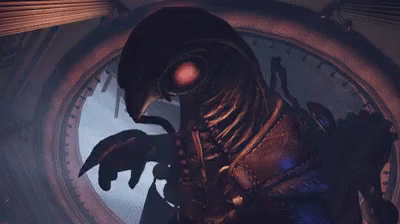
Level 20 - Wizard: Our capstone is Wizard 16, where we end with an ASI. So let's get some more Dexterity for that nice-looking 20. For our final spells, let's take Maze and Mighty Fortress.
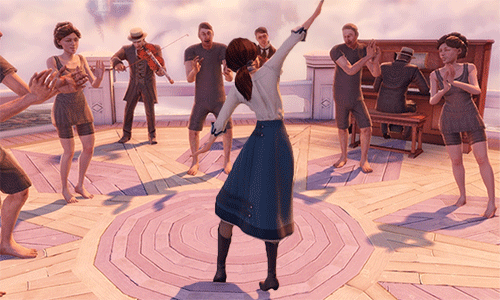
---
And that's our Multidimensional Marvel, Elizabeth. Let's see what we came out with:
First of all, this is clearly a support character. Their purpose is to hide, sneak, move around the battlefield, and provide assistance to the party by conjuring additional reinforcements. With enhanced ground speed, several teleporting spells, and proficiency in stealth, we should be able to provide long-range support without risking detection or damage.
Our AC is 15 (18 with Mage Armour), +5 to Initiative, and average of 142 Hit Points.
Unfortunately, we don't have a lot in terms of direct offense, both magical and physical. While our Dexterity managed to reach 20, we still have a negative Strength modifier and our Wisdom and Charisma are on the lower end; this could be problematic, since those are two of the more used saving throws.
---
Oh, wow. That took way too long than I wanted. I actually scrapped the entire build (originally it was Echo Knight Fighter with Illusion Wizard) and watched several playthroughs to get a feel for Elizabeth, but I hope in the end I've created something playable.
Unfortunately, a lot has happened during the time I was away, my loves. As of today, I've lost my job for which I've moved cities to live on my own. Silverlining, I will have time for you, so I guess we're back in action. I'll see you in the next one, my friends.
-Nerdy out
#dnd build#dnd character#dnd#dnd5e#character building#wizard#wizards of the coast#rogue#inquisitive rogue#conjuration wizard#elizabeth bioshock#anna dewitt#bioshock#bioshock infinite#elizabeth comstock
28 notes
·
View notes
Text
minor conjuration is such a broken and versatile ability for level 2 of all things and i'm loving it so much
most recent discovered usage: become a living fax machine and perfectly replicate any (nonmagical) documents you've seen at least once
10 notes
·
View notes
Photo
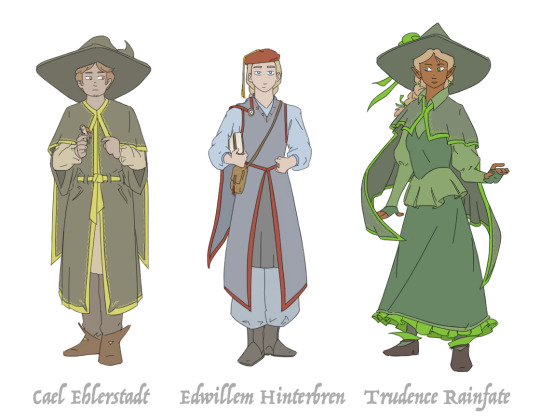

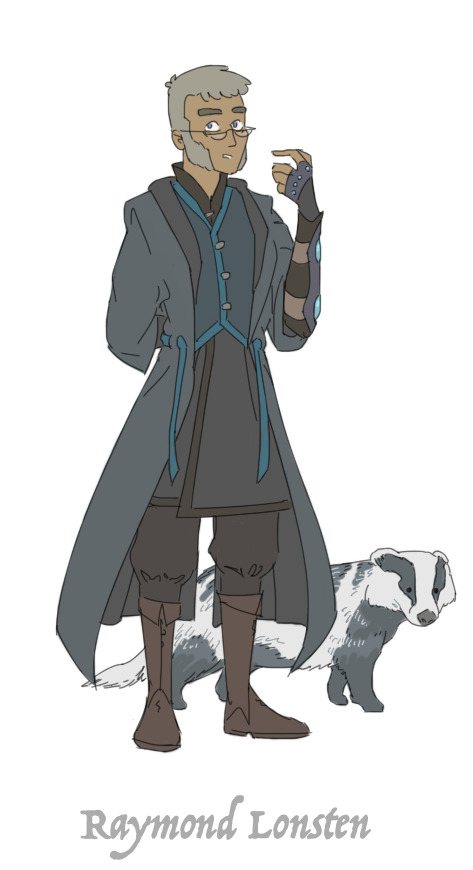
Some minor NPC wizards for my D&D campaign.
The schools of magic are color coded: Yellow for divination, red for evocation, green for illusion, orange for transmutation, blue for abjuration, purple for enchantment, cyan for conjuration, and indigo/black for necromancy (not represented here).
#dnd#character design#art#digital art#d&d npc#dnd npc#wizard#divination wizard#evocation wizard#illusion wizard#transmutation wizard#abjuration wizard#eldritch knight#enchantment wizard#sorcerer#pseudodragon#conjuration wizard#sparrow familiar#badger familiar
30 notes
·
View notes
Text
A portrait of my Wizard Lyn

#art#d&d#free art#dnd#free#sketch#dndcharacter#dnd campaign#dnd art#dragons#wizard art#conjuration#conjuration wizard#gnomecore#dnd gnome#gnome
8 notes
·
View notes
Text

Enna the moon elf
Class: Wizard-conjuration
Alignment: true neutral
This was the first ever drawing I did of Enna, she was the replacement character for a short lived sorcerer in a friend's DND campaign back in 2018.
She later became a main NPC in another campaign I run.
She's a little shit and all she wants to do is study fucked up magic and travel the planes
2 notes
·
View notes
Text
A wizard in crippling debt after schooling who has resorted to moonlighting as a thief. Guards and city officials are increasingly flummoxed at this mysterious burglars ability to get through even manors with teleportation warding without any sign of entry.
Few conjugation wizards fully utilize their abilities, or even realize that one glimpse of a key would let them recreate it RAW in 5e
1 note
·
View note
Text
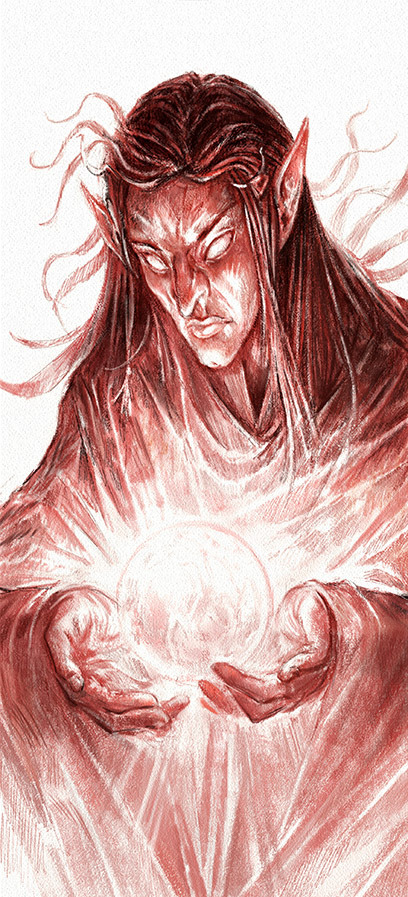
"Conjuration"
Art for Tales of Tamriel
Art by Jan Pospisil
#jan pospisil#the elder scrolls#art#concept art#tes#eso#the elder scrolls online#conjuration#wizard#wizard orb#altmer#high elf#tales of tamriel
169 notes
·
View notes
Text
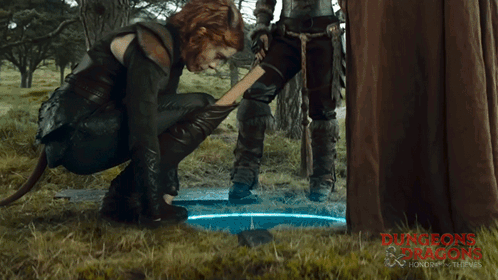
Arcane Gate
6th level conjuration
Sorcerer, Warlock, Wizard
175 notes
·
View notes
Text
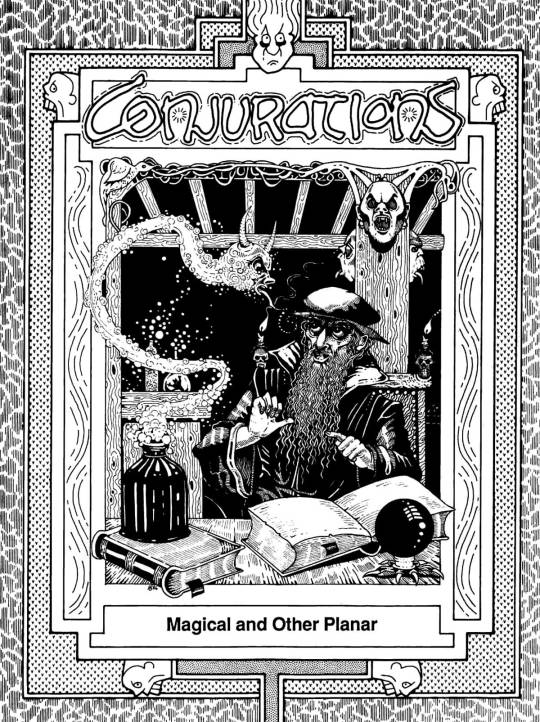
Hard at work conjuring some conjurations (Helen Bedford, from AC09: Creature Catalogue for BECMI D&D, TSR, 1986)
#D&D#Dungeons & Dragons#Helen Bedford#wizard#mage#Creature Catalogue#magic spell#crystal ball#magic book#magic tome#magic#BECMI#dnd#Dungeons and Dragons#conjurations#TSR#Creature Catalog
149 notes
·
View notes
Photo
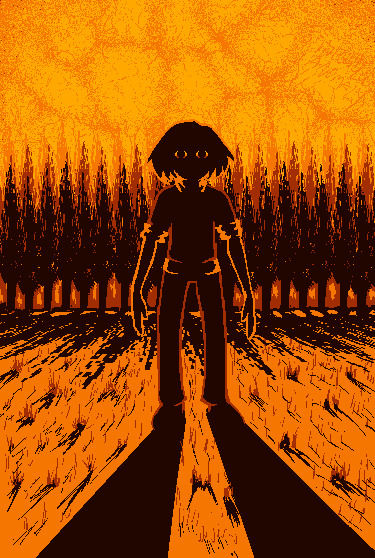
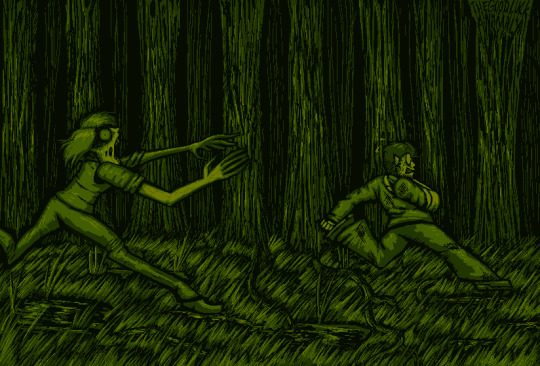
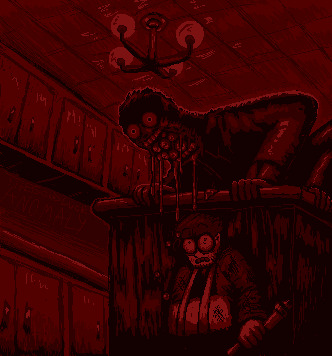
YELLOW MEANS PAUSE. GREEN MEANS FUCKING G O. RED MEANS STOP.
MUSTVE BEEN A HOT FUCKIN DAY. Y’ever been in a tent on a hot day? What about a tent made of meat? The air is so heavy with moisture that you could drink it, and youve been running the fuck around all day. Youre exhausted. And they ALL KNOW. The weight of just your own life is almost too heavy to carry, and theres still more to do. Just survive for me, okay?
#jrwi bitb#jrwi fanart#jrwi bitb spoilers#jrwi blood in the bayou#cw body horror#cw eye contact#cw eye strain#rolan deep#LOTSA TAGS ON THIS ONE BC IM REAL PROUD#LOOK AT MY POST BOY#I GOT SOME STOOORIES ABT THIS ONE TOO...#so i got wizard high with a homie. homie left n i brain blasted into the bitb soundtrack#felt emotional and conjured the red picture within about 2 hours#today i worked on the green one and that took most of the day#and then i took some old sketches i foror abt and made that into the yellow one which waaas#4 hours at this point#i got fukin TURBO INSPIRED by the gorefield thing from that one thing like remember gorefield or watever shit was fuqued#4 COLORS FOR EACH PIECE and its so pixely its socrunchy to me#i love pixel horror guys i love it so much#AND THAT RED ONE??#i put it on twitter and i think its my most popular drawing on there now..... shits CRAAAZYYYY#IM SO PROUD AND SO HAPPPY
670 notes
·
View notes
Text
The terror UNLEASHED (a lvl 1 conjurer wrecking havoc on Unicorn Way)

#wizard#Wizard101#digital drawing#wiz#wizkid#wizard city#wiz101#wizzy art#Wizzy101#wizard101 art#wizzy fandom#wizposting#art#artist#artwork#Fanart#concept art#myth#conjurer
114 notes
·
View notes
Text
One of the things that fascinates me, thematically, about wizards in D&D is the consciousness of their interactions with magic. They learn their craft by study, by conscious thought. And they choose their school, too, by conscious thought. When you make a wizard, you choose what elements of magic they choose to prioritise. What draws them, what repels them, what do they rely on, what do they seek out. The choice of school is as much a characterisation detail as anything else. It’s not just a case of learning spells by rote out of a book (well, no, it can be, but that’s probably a discussion in and of itself). Wizards are the class where you can dig in and get nerdy. There’s magical theory up in this joint.
The eight schools in themselves are also an interest mesh of themes and rationalisations, and that makes sense from a Doylist perspectives, because the game designers are choosing schools and effects outside the game, but it also works from a Watsonian perspective, because these are in-universe classifications based on what wizards assume is how magic works. All the spells are tied to a school, and thus the eight-school classification system, even if there are wizards who aren’t. And with any system of classification, there are arguments. Which is, of course, the fun of it.
So. With that in mind. Eight schools. Abjuration. Conjuration. Divination. Enchantment. Evocation. Illusion. Necromancy. Transmutation. Some essay questions slash thought experiments slash personality quizzes for student wizards in a D&D world, focusing on the classification of magic:
If you were choosing (or have chosen) a school of magic to specialise in, what would it be?
What do you think is the overriding purpose of your school of magic?
What element of your school of magic excites you the most?
What is one common derogatory misconception about your school that makes you angry?
What’s one spell of your school that you think should belong to another school? Explain your reasoning.
What’s one spell of a different school that you think should belong to yours? Explain your reasoning.
What would you consider the school of magic most diametrically opposed to your own? Explain your reasoning.
What would you consider the school of magic most similar to your own? Explain your reasoning.
Name one area of overlap or potential overlap between your school of magic and each of the other seven.
Name one area of conflict or potential conflict between your school and each of the other seven.
Which other school of magic would you consider it necessary of have a good understanding of in order to better study your own?
If you were grouping the eight schools into subgroups, what would the groups be, which schools would they include, and why?
Do you consider the purpose of magic to be useful or to be extraordinary? Which schools do you think best match each outlook?
What do you consider the primary ethical concerns with your school of magic? What would you consider the primary ethical concerns with each of the other schools?
Which school of magic do you find most difficult or unpleasant to work with? Why?
Which school of magic do you find easiest and most reassuring to work with? Why?
What is one question about the workings of each school of magic that keeps you up at night?
Do you think that magic should be divided into schools at all? If you think that it should, do you think that the eight schools currently agreed upon are the most accurate choices, or do you believe that they should be rearranged or replaced?
Do you believe that rigid classification aids or hinders the understanding of magic as a whole? Explain your reasoning.
Do you think that a spell should be considered part of a school of magic based on its effect, or based on the methods or rationale that created it, or based on some other criteria?
Is there a school of magic that you considered to be particularly badly defined? Is there a school that you consider particularly well defined? Do you consider this a clarifying factor or a limiting one?
Which school of magic do you most want to disassemble to base parts and understand the workings of? Is this the same school you are happiest using, or a different one?
What is your favourite spell that you have learned of? Is that spell of your own school or a different one?
What is one spell of your least liked school of magic that you consider worthwhile, and why?
What is one spell that you think should never have been invented, and why?
And, finally, just for fun and so everyone knows where we all stand: which school of magic do you find the adherents of most annoying? Not necessarily the school you think shouldn’t exist, but the one where when you meet a wizard of that school, you kneejerk want to punch them in the face, just because?
#d&d#wizards#schools of magic#the eight schools#magical theory#essay questions to get asked in wizard college#i'm having a surprising amount of thoughts on conjuration
250 notes
·
View notes
Text
so, uh. was i the only person who didn't know that the lonely wizard is canonically like 7-8ft tall?
based on every fan depiction i've ever seen i thought they were like. goblin size. they're nearly as tall as leshy.
no wonder magnificus put them in the forever box, if he ever actually taught them magic they would simply goomba stomp him on the spot to assert dominance as the larger mage. very cruel but that's just how nature works.
#inscryption#lonely wizard#what the fuck#STIMULATION#not cruel at all actually#get bent you dollar store christmas tree#your conjurations are mid and your moustache unflattering
120 notes
·
View notes
Text
Bc I’m curious and bored
#also tell me what school you made him!#like i made him a conjuration wizard but i associate him with lightning#bg3
57 notes
·
View notes
Text
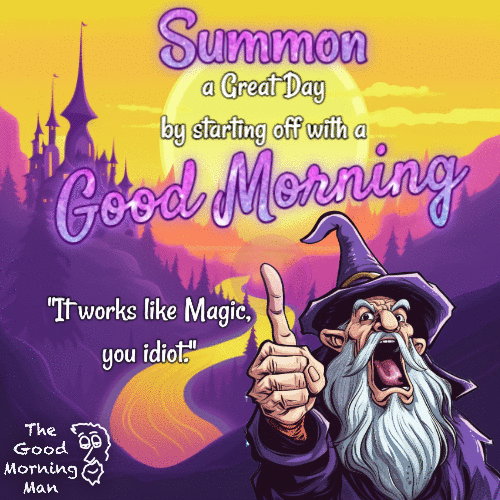
Do I have to SPELL it out for you? G-O-O-D M-O-R-N-I-N-G !-!-!
#good morning#good morning message#good#morning#the good morning man#good morning messages#good morning man#the entire morning#good moments#good morning images#good morning image#wizard#spellcaster#mage#summoner#summoning#summon#conjuration#spellcraft#wizard posting#wizard of love#magic#it works like magic#works like magic#works like a charm#gif
118 notes
·
View notes
Text
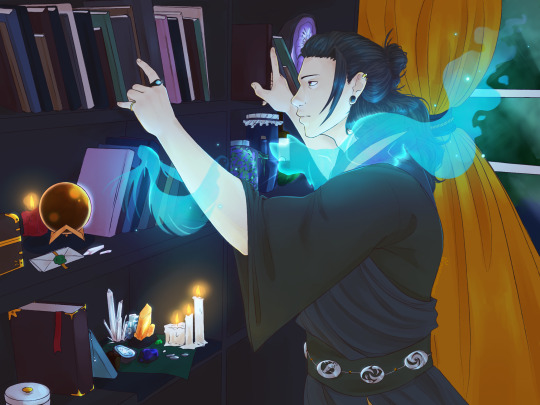
Hear me out: Wizard Suguru for a fantasy AU
18 notes
·
View notes